
IFSC Commentator Charlie Boscoe reports from the first - and likely only - IFSC Lead World Cup of 2020...
Yes, you did read that headline right - we actually HAD a World Cup! Almost 10 months to the day since the World Cup in Inzai, Japan, which closed out last season, the IFSC were finally able to get an event on and it took place in Briançon, in the heart of the Southern Alps. Please refer to last year's Briançon report for the full version of "I love Briançon", but in summary, it's peaceful but not sleepy, it gets 300 days of sunshine per year, it's quieter than virtually anywhere else in the French Alps, and the local mountains are enough to keep any climber, hiker, skier, kayaker or cyclist busy for several lifetimes. I approve.
Much as I love the location, I have to admit that I was more than a little anxious about going to my first big event of the year. I commentated on the Austria Climbing Summer Series Lead and Boulder rounds but they were attended only by very small numbers of people - Briançon was due to have 5000 spectators. I wasn't entirely sure that I was comfortable attending the event but in the end I decided to go, figuring that if everyone stuck to the mask-wearing rules and I kept my distance from people both at and away from the event, the risk was acceptable. Normally I like to chat to various people over the course of the event and get tidbits of inside information, but I consciously decided beforehand that I was only going to go near anyone I had to go near, and wouldn't be cruising the climbers and coaches looking for information. It made me a feel a little detached from the event rather than really part of it, but that was a price I was willing to pay.
Regardless of the fact that everyone was wearing masks, not shaking hands and standing unnaturally far apart, the event was always going to feel very different to previous World Cups simply because so many climbers weren't able to attend. The BMC decided in advance that they wouldn't be sending a British team (a policy which was initially not met with universal agreement but proved to be spot on when UK quarantine rules changed a week before the event) and we had no entrants from Asia or North America at all. As such, the event was a World Cup in name, but not in nature. Still, getting most of the World's best together and putting them on our screens again after the year we've had is a win no matter how you spin in.
When qualifiers rolled around it was remarkable how normal the whole thing felt, despite the ubiquitous masks and other anti-Covid measures. Generally, qualifiers went as I'd have expected, with Francesco Vettorata (ITA) and Jan Hojer (GER) being the most high profile casualties. One thing that amazed me was just how accurately the route setters judged the difficulty level having seen so little of the climbers recently. There hadn't been an international IFSC competition since the Olympic Qualifying Event in Toulouse in November, yet the setters seemed to judge the routes perfectly.
The story was much the same in the semis, with 2 technical and tricky routes providing an excellent show. The women mainly fell in the same section but they all fell in different ways and for different reasons, which is generally a sign of a decent route. The men meanwhile, had a real battle and were nicely spread out. There were plenty of stories from the semi-final, including Rishat Khaibullin (KAZ) being one of the standouts with a 10th place finish. He'd been 5th (!) in qualifiers despite being generally considered a Speed "specialist" because of his prowess on the Speed wall - a skill which won him an Olympic slot at last year's IFSC World Championship in Hachioji. If he can put in a strong performance in Speed come the Olympics, and continue his huge improvement in Lead, he's a good bet for a spot in the final. And once you're in the final, anything can happen…A tenner on him picking up a medal doesn't look like the worst bet ever.
Elsewhere there were strong performances from several of the French youngsters, with Nina Arthaud, Nao Monchois and Mejdi Schalk all making the final, along with the reliable Fanny Gibert, who missed out on Olympic qualification but looks as fired up as I've seen her. The Slovenian team also reminded us just how much talent they have available by sending no less than 6 climbers to the finals (2 men and 4 women). I was especially pleased for Vita Lukan, who snapped her ACL just when she looked set to kick on from winning the Youth World Championship in 2018, and has been training like a demon to come back.
Most of the big names made it through but Alberto Ginés López (ESP) got himself in a spot of bother mid-route and fell well short of where was required for a spot in the final. Given that he'd looked capable of claiming a maiden World Cup win towards the end of last year, he looked pretty hacked off to miss what might be his only shot this year. On the women's side, Julia Chanourdie (FRA) would have hoped for better than she got (12th) and Christine Schranz (AUT) could only manage 14th despite her excellent performances in the Austria Climbing Summer Series. Julia Fiser (AUT) also came achingly close to making her first finals appearance but did manage to match her best ever World Cup finish of 10th.
The evening of the finals was something of an emotional rollercoaster for just about everyone concerned - I arrived at the venue excited, nervous as ever about doing a good job and also anxious/curious about how the event would work with the Covid-19 regulations in place. It certainly felt strange watching 5000 people streaming into a venue after such an un-sociable year when many of us (me included) haven't even seen members of our immediate family since winter. The Gendarmes were on hand throughout the event and were policing the masks and social distancing measures as best they could, but you can only do so much with 5000 people in a field. I've seen some negative comments from climbers and fans about how the event was managed, and whilst I agree that there are elements that could have been done better, we're all learning how this new world will work and it's going to take a bit of practice. For a first attempt, I think the IFSC did a pretty good job, albeit I didn't go to the isolation or warm-up areas and therefore can't comment on them. I guess that the big problem arises when people stream out of the venue and off to various social events and are no longer constrained by any sort of regulations, but that's true whether there's an IFSC event or not. Anyway, we all chose to attend the event knowing that there would be thousands of people there and any of us could have left at any time had we felt it was the right thing to do - I went, it was my call and I did my best to behave correctly.
On the safe assumption that we're all sick of talking about Covid-19 (I never thought I'd reminisce about the days when Brexit dominated the News) let's move on to the action. The finals were both superb, with the routes being immaculately set and the wall looking utterly spectacular silhouetted against the Écrins mountains.
The women were up first and the high point just kept getting pushed further until Janja Garnbret (SLO) strode out and topped it. "Plus ça change, plus c'est la même chose" as the Briançon locals would say. I'd spoken to Janja after the semi-finals and she'd been delighted at how hard the route had been (she actually fell off it, such was the difficulty level). She might have found the final route a little easier but she still looked like she was challenged, and she clearly enjoyed being out in front of a crowd again. However, even Janja couldn't match the woman of the weekend, Laura Rogora (ITA). She pushed 6 moves higher than Janja on the brutal semi-final route and walked out in the final knowing that a top would net her a maiden World Cup win. No pressure, then. Laura duly delivered and looked, well, like any of us would if we'd just win a World Cup for the first time. Laura has grown since she broke onto the World Cup scene and she needed to because she was just so small that she was at a big disadvantage. That recent growth coupled with an impressive increase in strength has transformed her into a bona fide World-class athlete and with a 9b sport route and this win in Briançon under her belt, she can really kick on from here [EDIT: and that she did: on the very next day after finals, she climbed 9a in a day!]. Over the next few years, it would be great to watch Janja morphing into the old hand, with the likes of Laura and Chaehyun Seo (KOR) challenging her for supremacy. Whether that's how things pan out, I didn't think Laura's win was a one-off; she's going to win a few more of these things in the coming seasons.
On the men's side, Adam Ondra (CZE) had looked like a different species to just about everyone else all weekend and he backed that up by finding the only top in the final to seal an utterly dominant win. Adam was in Innsbruck recently and Jakob Schubert (AUT) was blown away by just how strong the Czech superstar had got in lockdown. Jakob confirmed the story to me, and I was staggered - it's a bit like Mike Tyson telling you he wouldn't want to meet you in a dark alley. Jakob said that seeing Adam's strength motivated him to train even harder, but it wasn't enough to get him any better than third in Briançon, with a seemingly rejuvenated Domen Skofic (SLO) in second, and probably pretty chuffed with his decision to compete despite originally planning to have a year off. Lower down the order we had Alex Megos (GER), fresh from his staggering first ascent of "Bibliographie" (9c) at Céüse. Alex didn't really seem physically or mentally in the right place for competitions, ended up 5th and looked ready for a few weeks at the beach. Just ahead of him was Luka Potocar (SLO) who had a wonderful weekend and took 4th in his first ever final.
Now, regular readers of these reports (if such people exist…?) will have read me praising Adam Ondra many times but here I go again; he is simply the best rock climber there has ever been and it's quite extraordinary to watch. Other climbers focus on competitions, or dabble in them while doing more outdoor climbing but Adam does both and manages to be the best in both, which basically shouldn't be possible. They look similar to the casual observer, but nobody wins the Olympic marathon and also sets speed records on mountains; Adam does the equivalent of that in climbing. Just ponder the following stats for a second, and then consider that this is a 27-year-old man who is probably entering his physical prime.
Adam has climbed -
170 routes of 9a above (including one of 2 - if Alex Megos' "Bibliographie" stands up to its proposed grade - 9c's) including 3 9a onsights.
293 boulders of 8A or harder, including 4 8C+'s.
The Dawn Wall - the hardest big wall route in the World.
Adam has won -
3 World Cup season titles in Lead and 1 Boulder.
3 Lead World Championships and 1 Boulder World Championship.
15 Lead World Cups and 4 Boulder World Cups. Of the 21 Lead World Cup medals he has - 15 of them are gold.
The funniest part is that we often go for long periods without seeing him compete and then he just comes back to remind us that he could win virtually every event if he chose to. His sport climbing stats make him the best sport climber of all time, he'd have a good shout for being the most successful boulderer in history, and the sheer volume of his comp successes (especially when you consider how little he competes compared to some other climbers) make him one of the best competition climbers we've ever seen. If he really went for it over the next few years, we'd be able to remove "one of" from that sentence. Oh yeah, and he took 3 weeks to climb a route which took the World's most accomplished big wall climber - Tommy Caldwell - 7 years of toil. He is the greatest of all time and we might never see his like again - enjoy every second of it.
Sadly the competition had a sad end when we had an (entirely appropriate) tribute to Luce Douady (FRA) who was killed approaching a crag near Grenoble in June. Somehow everyone who spoke to the crowd managed to hold it together, and - except for a few moments of going a bit husky - I just about succeeded in doing the same as I read out the translations of the speeches. There isn't much more to add to what was said, but I was proud of the IFSC for having the tribute and for delivering it so well.
For one weekend we got to experience something resembling normality and it was a good reminder than normality means highs and lows, thrills and spills, unimaginable highs and soul-destroying lows. Now let's just hope we can do it again soon.
IFSC Climbing World Cup (L) - Briançon (FRA) 2020
Results

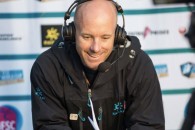

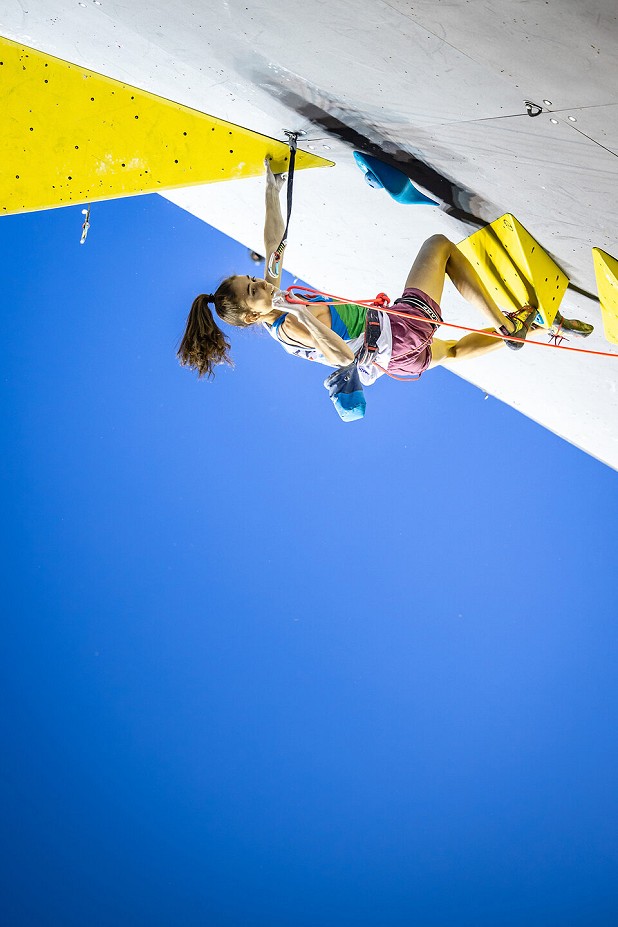
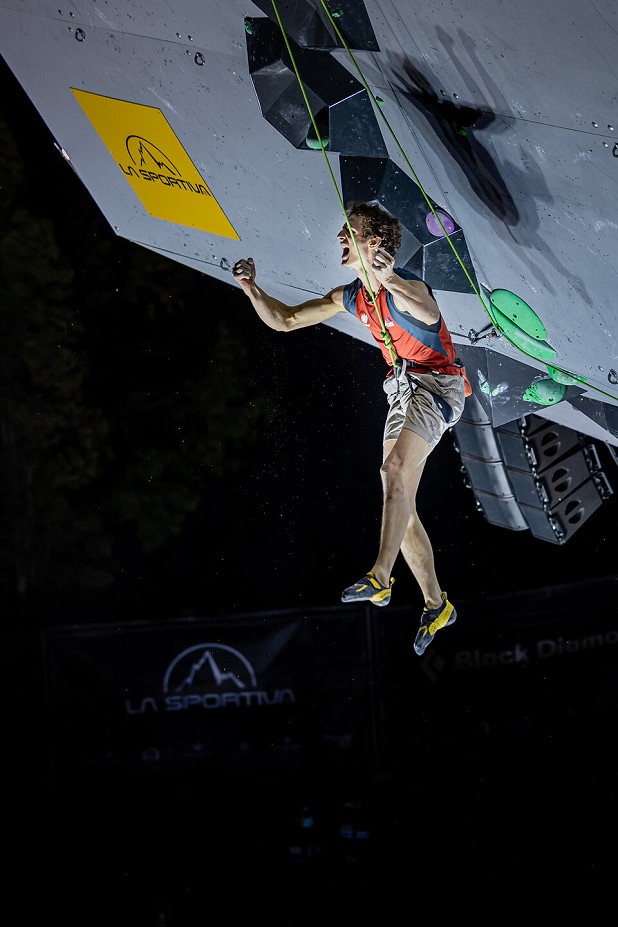
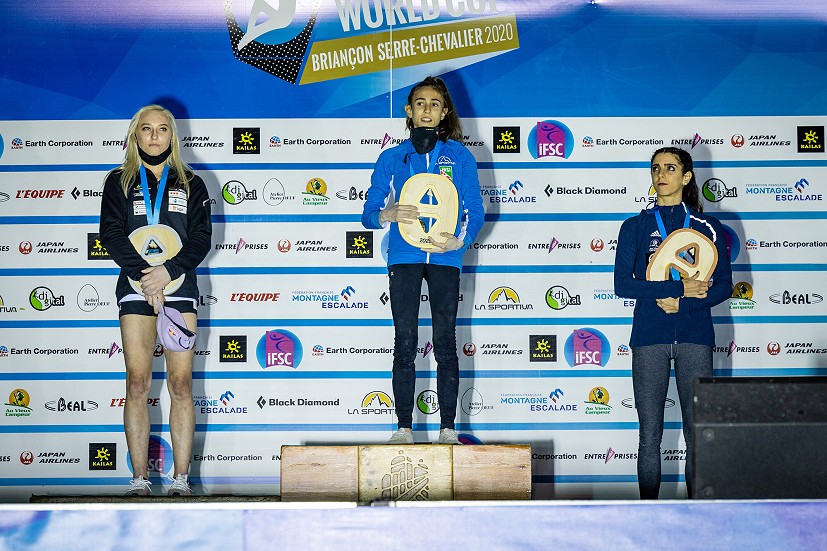
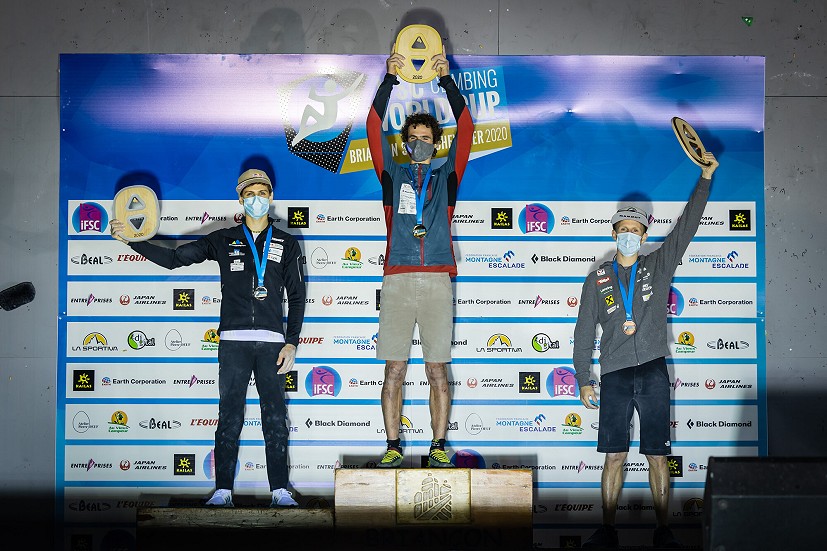
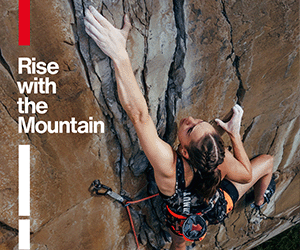

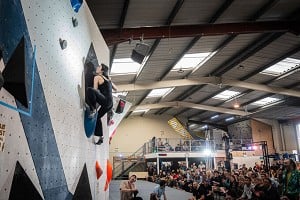
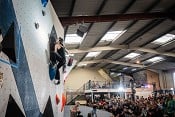



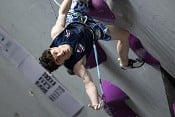
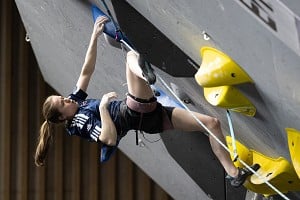
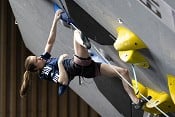
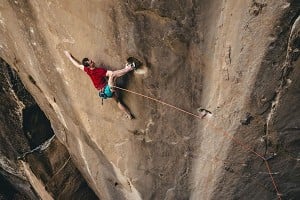
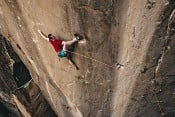


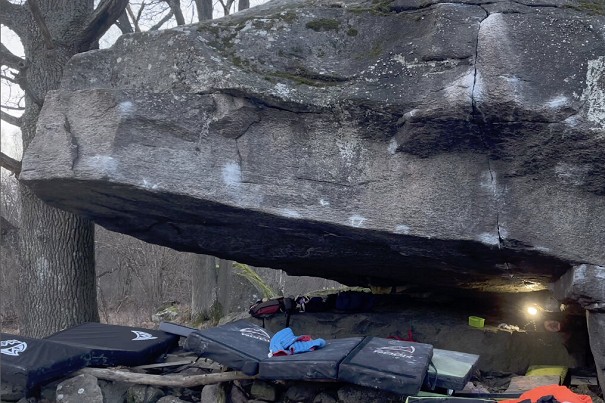
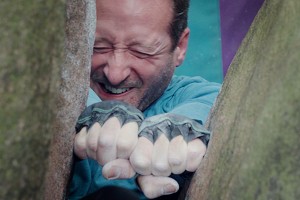
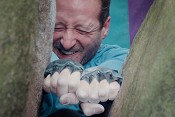
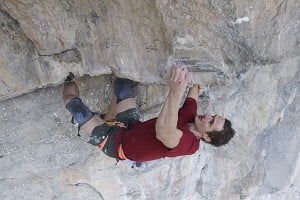


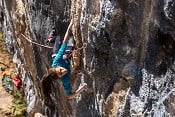
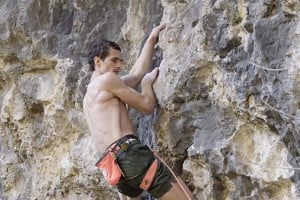
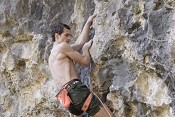

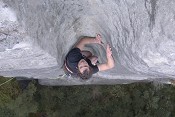
Comments
It was great to see some competition again. Interesting routes in both the semi-finals and finals and some great climbing on show with excitement to the very end. The commentary was excellent as always.
Excellent write-up. Thank you Charlie.
Nice report. The competition world has really crossed a threshold in the last few years, helped by some of the incredible climbers along the way. Ondra looks in the best form of his life at the moment and Laura Rogora climbing 9a 3rd go is incredible on its own, but even more so the day after a comp.
One thing I'm not totally clear on:
I'm not convinced it's the BMC's job to second guess travel restrictions. It was entirely legal for British climbers to compete, several were already on the continent and may not even be returning to the UK so quarantine wasn't an issue (and again, I don't think that's the BMC's business). In some ways it's a strange system, needing to be registered by your country to compete, when you're competing as an individual (and also funding most of this). Given the minimal support provided to the GB Comp team I think it's a poor decision to put other barriers in their way.
The BMC have a history of having Molly T-S sitting watching competitions rather than taking part. Who, how, why that helps anyone is a mystery to me...
Totally agree - especially having seen GB Ski juniors not even at an event but just doing summer glacier training in Austria a few weeks ago.
Who is supposed to be gaining what from depriving Molly of top level competition practice when she's clearly a serious contender for the remaining Olympic slot at the European championship?